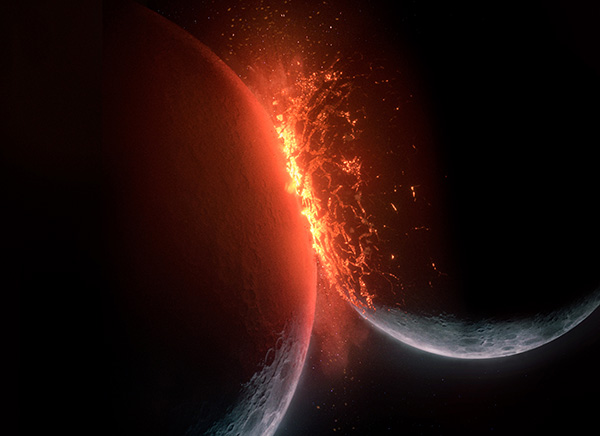The planets are the stars of online documentary
By Wang Kaihao | China Daily | Updated: 2019-05-30 08:12

It is an old story, more than 4.5 billion years old.
Eight celestial bodies, each with their own distinct personality, born together and battling the violence of our early solar system, vying for their own survival and thriving to become stable planets.
Geological epochs come and go, entire atmospheres are formed and lost, and the planets themselves even begin to alter course. Thanks to a new documentary made by BBC Studios' Natural History Unit, it's all vividly portrayed with groundbreaking special effects and computer-generated imagery more akin to that of big-budget sci-fi movies.
The Planets, a five-part series that made its global debut on Wednesday, was coproduced by Tencent Video and released in China via the company's streaming video platform.
An online thematic broadcast plan called "Star Travel Season" was recently launched by Tencent Video to enhance the Chinese public's interest in astronomy. Other than The Planets, a series of space-themed documentaries, including Mars and Cosmos: A Spacetime Odyssey, both made by the National Geographic Channel, and the BBC's Wonders of the Universe, have been broadcast or are due to air.
"The series tells the story of planetary evolution," Gideon Bradshaw, producer of The Planets, says during an interview with China Daily following a prescreening in Beijing. "If you look at the whole time span, you'll find spectacular drama there. We give them (the planets) personalities."
For example, Earth and Mars are portrayed as sisters sharing a similar environment during childhood. However, when they reach adolescence, Earth escaped the overbearing clutches of their father, the Sun, to become a nurturing mother, while the less fortunate Mars did not, becoming barren and unwelcoming.
Jupiter, the oldest planet, is like "the Godfather", who demands respect and wields power and influence. It would have obliterated every rocky planet, including Earth, on its journey to the Sun, were it not for its tussle with Saturn.
Bradshaw explains that the team's approach to the production was similar to how Pixar makes its animated films.
























